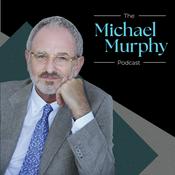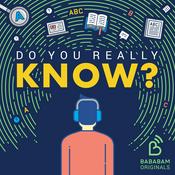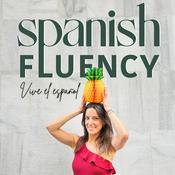416 episodes
- To start off the year, I wanted to explore a topic that often gets swept under the rug. Mental well-being, or the lack of it, in farming communities has reached epedemic levels. Farmers in Europe face a nasty mix of chronic overwork and poor recovery, high uncertainty and low control in their work, and heavy admin/compliance pressure, often while working in social isolation with a culture that can discourage help-seeking. Those pressures stack and reinforce each other (less sleep and more stress lead to worse decisions, more conflict and injuries, tighter finances, and even less time off) driving burnout, anxiety/depression, and in some contexts elevated suicide risk. The stress factors for farmers are only increasing too, as weather variance, economic pressure, bureaucratic stress, and social factors mount. For this reason my hope in this panel session is to shed some light on mental health, and some ways to avoid burnout in the upcoming season from a number of different perspectives.
- There’s no way around it, governance of the agricultural industry has a massive impact on how farms and the agrifood system are managed. Policy, regulations, and incentives are driven by many forces and stakeholders. Yet the political machine is slow and heavily influenced by financial interests. Where does this leave farmers themselves, and most notably, farmers who strive to steward their land and ecosystems in ways that policy hasn’t caught up to or in some cases, doesn’t even allow? In this panel we’ll explore these and many more questions with speakers who are closely connected, not only with the political side of this discussion, but the growers and land stewards affected. Is there hope for positive change and better incentives, or will those committed to advancing regenerative agriculture continue to swim against the current?
- Welcome back to another episode in our panel discussion series. In this edition we’ll be focusing on the challenges and opportunities of climate adaptation with examples of farmers in different key and representative zones of Europe.
There's no question that the climate is shifting in severe and unpredictable ways. The question is how can agriculture adapt to this new reality. Like all systemic challenges we'll take a look at this broad topic from a number of farmer perspectives as we explore the adaptations that can be made on the land, in the business, and the support mechanisms needed from the wider agri-food sector to assist in the transition. From humble beginnings, to leading a permaculture revolution in Malawi, with Luwayo Biswick
05/12/2025 | 57 mins.Alex got a chance to follow up with Luwayo Biswick in Malawi. Luwayo had been on the Regenerative Skills podcast when it was still Abundant Edge for episode 71 in 2018.
As the Founder of the Permaculture Paradise Institute, Luwayo and his family have built an enterprise that helps local farmers throughout the whole country learn how to integrate regenerative practices. The Institute works on a trainer model that helps farmers get access to the tools, seedstock and livestock they need to create a steady stream of productive, diverse foodcrops. As a country with thousands of smallholders, the gap between conventional agricultural practices and resilient abundance requires peer learning, and access to new tools and techniques.
You can learn more and support the institute on their website: https://permacultureinstitutemw.com/ -- you can also learn how to sponsor farmers and farm training there!- In our tour of Sub Saharran Africa, Alex followed a recommendation from Thiang’o to talk with Ripura Hewick. Ripura is based in Namibia, and manages a dryland farm for the non-profit Steps for Children.
Ripura started as a traditional Agrobusiness management student University of Science and Technology (NUST) graduate with a Bachelors of Agriculture but left conventional agriculture, disappointed in the business. After a hiatus he returned to as a farm manager of a permaculture project connected to one of Steps for Children’s schools.
In this interview, Ripura describes the unlearning and relearning process he had to go through to figure out how to successfully build a community integrated market garden, that provides nutrition, education and seedlings for the local community.
More Education podcasts
Trending Education podcasts
About Regenerative Skills
Helping you learn the skills and solutions to create an abundant and connected future
Podcast websiteListen to Regenerative Skills, IT IS WHAT IT IS! and many other podcasts from around the world with the radio.net app

Get the free radio.net app
- Stations and podcasts to bookmark
- Stream via Wi-Fi or Bluetooth
- Supports Carplay & Android Auto
- Many other app features
Get the free radio.net app
- Stations and podcasts to bookmark
- Stream via Wi-Fi or Bluetooth
- Supports Carplay & Android Auto
- Many other app features


Regenerative Skills
Scan code,
download the app,
start listening.
download the app,
start listening.





































